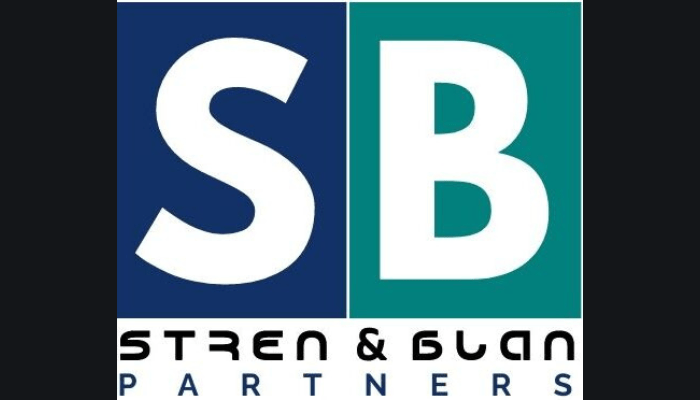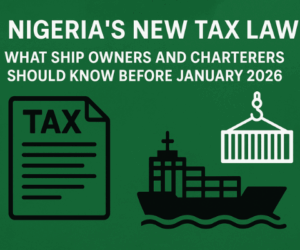Introduction
Multinational Enterprises (MNEs) operate across various jurisdictions, creating complex global supply chains. By utilising foreign subsidiaries, MNEs take advantage of lower operational costs and flexible labour standards, which enhance competitiveness and support growth. However, concerns have arisen regarding MNEs limiting wages and benefits, lowering safety standards, and undermining basic labour rights.
In Nigeria, the National Industrial Court (NICN) protects MNE employees’ rights, alongside International Framework Agreements (IFAs) and labour rights conventions. Effective enforcement of foreign judgments is essential for ensuring these protections, yet challenges persist due to rigid interpretations. This article examines the enforcement procedures in Nigeria and offers insights into how MNE employees can navigate jurisdictional obstacles, along with recommendations for improvement.
Principles of Application and Enforcement of Foreign Judgements in Nigeria
Generally, the enforcement of foreign judgments in Nigeria is governed by some legislation, such as the Reciprocal Enforcement of Foreign Judgments Ordinance (“the 1958 Ordinance”), The Foreign Judgements (Reciprocal Enforcement) Act (“the FJA”), The Constitution of the Federal Republic of Nigeria 1999 [(as amended) the Constitution], the Sheriffs and Civil Process Act (SCPA) , and the Interpretation Act . Procedurally, in Nigeria, foreign judgments are enforced through two methods: enforcement through a superior court of record in Nigeria, either by way of an action at common law or by reciprocal enforcement. These procedures will be examined below.
Enforcement of Foreign Judgement through an Action at Common Law
Under this method, a fresh action is instituted at a court with similar jurisdiction via a writ of summons, with the judgment being the cause of action which need not go through the rigours of a substantive trial. Additionally, the Applicant, who is the judgment creditor, is expected to accompany the writ of summons with an application for summary judgment or an application to enlist the matter under the undefended list. Section 3(2) of the FJA spells out the conditions precedent as follows:
a. The foreign judgment must be final and conclusive between the parties;
b. There is payable thereunder a sum of money, not being a sum payable in respect of taxes or other charges of a like nature or in respect of a fine or other penalty; and
c. It is given after the coming into operation of the order directing that this part of the FJA shall extend to that foreign country.
To enforce a judgment via summary procedure in Nigeria, the Applicant must file an application supported by an affidavit, proof that the judgment is unexecuted, a writ of summons, a certified true copy of the foreign judgment, copies of other relevant exhibits, and a written address satisfying the conditions in Section 3(2) of the FJA.
Reciprocal Enforcement
The FJA allows a foreign judgment creditor in Nigeria to apply to a superior court to register a foreign judgment within six years from the judgment date or after the last appeal judgment. A judgment cannot be registered if it has been fully satisfied or is unenforceable in the original court’s country. Registration gives the judgment the same effect as a local judgment. Key to this process is the principle of reciprocity, which requires the foreign court to enforce Nigerian judgments as well. The application must be made by Motion Ex Parte, supported by an affidavit and a written address proving reciprocal enforcement. The enforcement application must address: (i) the applicable legal regime, (ii) the appropriate court for jurisdiction, (iii) the debtor’s appeal rights, and (iv) the timeframe for enforcing the foreign judgment.
Enforcement of Foreign Judgements under the NICN
In Nigeria, the National Industrial Court of Nigeria (NICN) should ordinarily have exclusive jurisdiction for enforcing foreign judgments relating to labour, employment and industrial relations matters. This aligns with the legal principles requiring the Nigerian Court to have substantive jurisdiction to initially determine the disputes culminating in the foreign judgment. Key legal provisions to be considered in this regard are section 2(1) of the Foreign Judgments Act (FJA), which defines “superior courts in Nigeria,” in comparison with sections 254D (1) of the Constitution that provides that the NICN shall have all the powers of a High Court in exercising the jurisdiction conferred on it under the Constitution or an Act of the National Assembly. Sections 254C (1) and 254F (1) of the Constitution assert that the NICN has exclusive jurisdiction over civil matters related to labour, employment, trade unions, and industrial relations.
Despite the clear provisions of the law, the National Industrial Court of Nigeria (NICN) in the recent case of Richard Saxton v Opi International Nigeria Limited has held that it lacked the jurisdiction to enforce foreign judgments. This position was reached not considering the recent Constitutional amendments and the innovative provisions in the NICN Rules 2017. The NICN, while striking out the Application and refusing the orders sought by the Applicant, held at pages 5-6 of the Judgment that:
The subject matter of this application is Foreign Judgments Enforcement. The question is: has the National Industrial Court Act 2006, and the 1999 Constitution (Third Alteration Act 2010) conferred the National Industrial Court with jurisdiction to enforce Foreign Judgments? The answer is No… By section 2 of the Foreign Judgments (Reciprocal Enforcement) Act, ‘superior court in Nigeria’ means the High Court of a State or of the Federal Territory Abuja, or the Federal High Court…The Act has expressly mentioned the Courts that can register and enforce Foreign Judgments. The National Industrial Court is not so mentioned… ‘Jurisdiction is not to be equated with power…for all the reasons stated above…” (Emphasis supplied).
Although we agree that the court lacked jurisdiction to recognise and enforce the foreign Judgement in that case given the fact that as the court observed, the Applicant failed to prove that the District Court of Texas, Houston, United States which gave the Judgement is a superior court of record and that there is reciprocity in respect of recognition and enforcement of judgements between Nigeria and the United States as required by section 4 of the FJA; we disagree with the ratio of the decision as highlighted above. The ratio marked a significant setback for the Nigerian labour law regime – potentially undermining hard-won protections and setting a concerning precedent. The decision did not consider provisions of Order 47, Rules 28 and 29 of the NICN Rules 2017, which set out the procedure for registration, application, and enforcement of a foreign judgement in the NICN.
Notwithstanding the NICN decision in Saxton’s case, our position is that the NICN can enforce foreign judgments for the following reasons. First, the Constitution of Nigeria is the supreme law, and its definition of superior courts prevails over that of any other Act including the FJA. Second, the principle of implied amendment applies – when a later Act conflicts with an earlier one, it typically means the earlier Act has been amended. Consequently, the Third Alteration Act, specifically section 254C of the Constitution 1999 (as amended), which establishes the NICN as a superior court of records and outlines the NICN’s jurisdiction, implicitly amends the provisions of the FJA. Therefore, we believe it is a manifest absurdity to hold that the NICN cannot enforce foreign judgements in Nigeria, given that the NICN is the only court with substantive jurisdiction on industrial, employment and labour matters in Nigeria.
Significantly, Order 47 Rules 28 and 29 of the NICN Rules 2017 have clearly spelt out the procedure for registration, application for leave, and enforcement of a foreign judgement under the NICN. Rule 28 provides that:
When a Judgment, Ruling or Order of a court of foreign jurisdiction is to be enforced in Nigeria by the Court, the party seeking the enforcement of the judgment, ruling or order shall register the certified true copy (CTC) of the Judgment, Ruling or Order having the seal of the foreign Court jurisdiction, the signature of the judge who delivered the Judgement or made the Order and the date the Judgment was delivered or that the Order was made with the Registry.
By the NICN Rules, for the NICN to recognize and enforce a labour-related foreign judgement, the applicant must first seek leave of the Court, by an application made ex parte. The Application must be accompanied by a statement setting out the name and description of the applicant; the Judgement, Ruling or Order to be enforced with details and particulars; and an affidavit in support.
Therefore, employees of MNEs who wishes to enforce any foreign judgment in Nigeria can approach the NICN on the strength of the Constitutional provisions and the NICN Rules highlighted above, and enforce the judgements, provided the conditions under sections 3 or 4 of the FJA, and Order 47 Rules 28 and 29 of the NICN Rules are satisfied.
CONCLUSION
While we await a definitive judicial pronouncements on the rights of employees of MNEs to enforce foreign labour-related judgments in the NICN, we note that one clear thing is that the FJA’s non-mention of the NICN (as the Court erroneously held in Saxon’s case) has been overridden by the combined effects of the provisions of section 254C of the Constitution of the Federal Republic of Nigeria, 1999 (as amended) and Order 47, Rules 28 & 29 of the NICN Rules 2017, recognizing the NICN as a superior court in Nigeria, and empowering the NICN to recognise and enforce labour-related foreign judgements.
Marvis Oduogu is a Team Lead at Stren & Blan Partners and supervises the Firm’s Taxation, Immigration, Labour and Employment Practice Groups. Ifeanyi Ezechukwu is a Senior Associate, whilst Shamsudeen Kazeem is an Associate, both in the Firm’s Taxation, Immigration, Labour and Employment Practice Groups.
Stren & Blan Partners is a full-service commercial Law Firm that provides legal services to diverse local and international Clientele. The Business Counsel is a weekly column by Stren & Blan Partners that provides thought leadership insight on business and legal matters.








